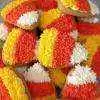-
Welcome to Celiac.com!
You have found your celiac tribe! Join us and ask questions in our forum, share your story, and connect with others.
-
Celiac.com Sponsor (A1):
Celiac.com Sponsor (A1-M):
-
Get Celiac.com Updates:Support Our Content
Opinions From Horse Lovers/owners
-
Get Celiac.com Updates:Support Celiac.com:
-
Celiac.com Sponsor (A17):
Celiac.com Sponsor (A17):
Celiac.com Sponsors (A17-M):
-
Recent Activity
-
- trents replied to Ello's topic in Celiac Disease Pre-Diagnosis, Testing & Symptoms7
Small Bowel Resection 12 inches
You might consider asking for a referral to a RD (Registered Dietician) to help with food choices and planning a diet. Even apart from any gluten issues, you will likely find there are some foods you need to avoid because of the shorter bowel but you may also find that your system may make adjustments over time and that symptoms may improve. -
- Ello replied to Ello's topic in Celiac Disease Pre-Diagnosis, Testing & Symptoms7
Small Bowel Resection 12 inches
I wish Dr’s would have these discussions with their patients. So frustrating but will continue to do research. Absolutely love this website. I will post any updates on my testing and results. Thank you -
- trents replied to Ello's topic in Celiac Disease Pre-Diagnosis, Testing & Symptoms7
Small Bowel Resection 12 inches
Losing 12" of your small bowel is going to present challenges for you in nutritional uptake because you are losing a significant amount of nutritional absorption surface area. You will need to focus on consuming foods that are nutritionally dense and also probably look at some good supplements. If indeed you are having issues with gluten you will need to... -
- Ello replied to Ello's topic in Celiac Disease Pre-Diagnosis, Testing & Symptoms7
Small Bowel Resection 12 inches
Yes this information helps. I will continue to be pro active with this issues I am having. More testing to be done. Thank you so much for your response. -
- trents replied to Ello's topic in Celiac Disease Pre-Diagnosis, Testing & Symptoms7
Small Bowel Resection 12 inches
There are two gluten-related disorders that share many of the same symptoms but differ in nature from each other. One is known as celiac disease or "gluten intolerance". By nature, it is an autoimmune disorder, meaning the ingestion of gluten triggers the body to attack it's own tissues, specifically the lining of the small bowel. This attack causes...
-



Recommended Posts
Archived
This topic is now archived and is closed to further replies.